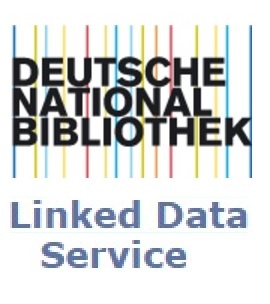Linked Data Service of the German National Library


The German National Library (DNB) is building a linked data (LD) service that in the long run will permit the semantic web community to use the entire stock of national bibliographic data, including all authority data. LD service is making a significant contribution to ensuring the stability and reliability of the linked data cloud by providing data of high quality.
Reminder:# SWIB conference (Semantic Web in Libraries) is an annual conference focusing on Linked Open Data (LOD) in libraries and related organizations. SWIB17 will take place in Hamburg, 4 - 6 December 2017. Call For Proposals: Submission Deadline: 14 May 2017 # Free Webinar: Powering Linked Data and Hosted Solutions with Fedora : 16 May 2017 |
The DNB has been supplying its data in the RDF standard via the LD Service since 2010. By offering RDF as an equal status export format, it allows users and user groups to re-use its data in a way which requires no knowledge of bibliographic formats.
The service is subject to ongoing further development and optimisation at the technical, content and organisational levels. Besides developing its own service, the German National Library is also actively involved in the Bibliographic Framework Transition Initiative.
The Creative Commons Zero (CCO 1.0) usage licence applies for the Integrated Authority File (GND) and the bibliographic records of the LD Service. Since the end of January 2014, some geographic authority data contains unchanged coordinates from the GeoNames database.
GND stands for "Gemeinsame Normdatei" (Integrated Authority File) and offers a broad range of elements to describe authorities using W3C's RDF technology. The GND originates from the German library community and aims to solve the name ambiguity problem in the library world. Corresponding data is usually expressed in a customized MARC 21 Authority Format (GND MARC Format) which is quite domain specific and is not used beyond the library and publisher world. The GND ontology tries to bridge this gap by providing a format specification for the usage in the semantic web... To ensure compatibility, the GND ontology aligns with already established vocabularies such as the FOAF vocabulary as well as with new ones like the RDA Vocabularies. We aim to align a number of additional vocabularies as soon as possible wherefore vocabulary suggestions as well as contribution in the alignment work is more than welcome... |
Since October 2015, some bibliographic data contains subject classes from Thema, a subject category scheme for a global book trade.
The metadata and online interfaces are provided with no guarantee of their being continuous, punctual, error-free or complete, or of their not infringing the rights of third parties (e.g. personal rights and copyright).
Metafacture is used to convert the data to RDF. Metafacture was developed by culturegraph.org is used to convert the data to RDF.
Test data in RDF (RDF/XML or Turtle) representation are available, free of charge, under the "Aktionen" menu item in the full view of the Catalogue of the German National Library or in the Data Shop. All formats are offered in UTF-8 decomposed.
Linked Data Service - frequently asked questions (FAQ)
Documentation
- Note regarding access (PDF, 103KB, Not barrier-free file.)
- Version history (PDF, 185KB, Not barrier-free file.)
- Modelling of bibliographic data (PDF, 951KB, Not barrier-free file.)
- Modelling of authority data: GND-Ontology
- New developments in data services
- Linked-Data-Service Mailingliste
Download
Source: LINKED DATA SERVICE OF THE GERMAN NATIONAL LIBRARY; for further questions: datendienste@dnb.de
_________________________________________________________________________________________________
Related content:
Did you know that AGROVOC LOD is aligned with SWD (German: Schlagwortnormdatei) - a controlled keyword or descriptor system (subject indexing), that is mainly used for indexing in libraries? The SWD is managed by the German National Library (DNB) in cooperation with various library networks (source: AIMS) |
- Bridging End Users’ Terms and AGROVOC Concept Server Vocabularies (DCMI)
- Exploring Linked Data : for learners and instructors (AIMS)
- Linked Open Data (LOD) (ERCIM)
- Linked Data Links - Contents (Karen Coyle on the Web)
- Vocabulary and Dataset (W3C)

